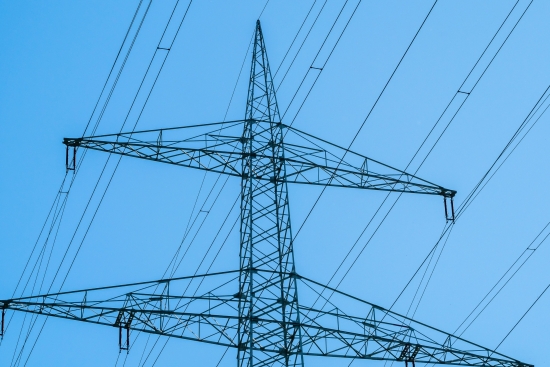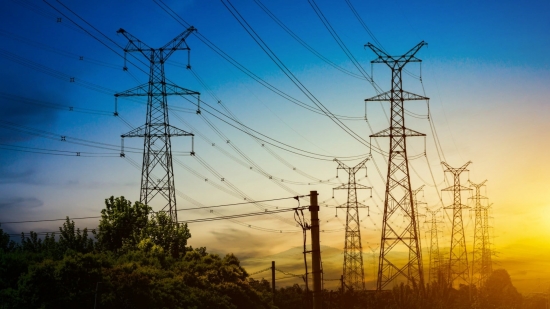LEGAL OVERVIEW OF VIETNAM'S CYBERSECURITY
Vietnam officially connected to the global Internet in 1997. According to statistics by the beginning of 2023, which is more than 20 years later, Vietnam is also in the group of countries with the fastest Internet development in the world, Vietnam has 77.93 million Internet users, accounting for 79.1% of the total population. The vast majority of people have access to the Internet has made important contributions to society and the knowledge economy, but with it comes potential risks such as information theft, identity forgery, online fraud,... This article will provide readers with the most overview of Vietnam's cybersecurity law in order to help readers gain general knowledge about cybersecurity law.
03/07/2023

Vietnam officially connected to the global Internet in 1997. According to statistics by the beginning of 2023, which is more than 20 years later, Vietnam is also in the group of countries with the fastest Internet development in the world, Vietnam has 77.93 million Internet users, accounting for 79.1% of the total population. The vast majority of people have access to the Internet has made important contributions to society and the knowledge economy, but with it comes potential risks such as information theft, identity forgery, online fraud,... This article will provide readers with the most overview of Vietnam's cybersecurity law in order to help readers gain general knowledge about cybersecurity law.
1.Some general concepts
- Cybersecurity is the assurance that activities in cyberspace do not harm national security, social order and safety, legitimate rights and interests of agencies, organizations and individuals.
- Network security protection is the prevention, detection, prevention and handling of network security violations.
- Cyberspace means an interconnection network of information technology infrastructure, including telecommunications networks, the Internet, computer networks, information systems, information processing and control systems, databases; is a place where people perform social behaviors that are not limited by space and time.
- Cybercrime is the act of using cyberspace, information technology or electronic means to commit crimes specified in the Penal Code.
- Cyberattack is the act of using cyberspace, information technology or electronic means to sabotage or disrupt the operation of the network. telecommunications, Internet, computer networks, information systems, information processing and control systems, databases, electronic media.
- Cyberterrorism is the use of cyberspace, information technology or electronic means to commit terrorist acts or finance terrorism.
- Network espionage is the act of intentionally bypassing warnings, access codes, passwords, firewalls, using administrative rights of others or by other methods to illegally appropriate or collect information and information resources on telecommunications networks, Internet, computer networks, information systems, etc information processing and control systems, databases and electronic means of agencies, organizations and individuals.
2. Current Vietnamese laws on cybersecurity
2.1. Legal basis
Current legal documents governing cybersecurity include:
- Law on Cybersecurity 2018
- Law on Cyber information Security No. 2015
– Decree 15/2020/ND-CP on sanctioning administrative violations in the postal sector, telecommunications, radio frequencies, information technology and electronic transactions
- Decree 53/2022/ND-CP detailing a number of articles of the Law on Cybersecurity
2.2. State policies on cybersecurity
- Prioritize cybersecurity protection in defense, security and socio-economic development, science, technology and foreign affairs.
- Building a healthy cyberspace without harming national security, social order and safety, legitimate rights and interests of agencies, organizations and individuals.
- Prioritize resources to build a specialized cybersecurity protection force; improve the capacity of cybersecurity protection forces and organizations and individuals involved in cybersecurity protection; prioritize investment in scientific and technological research and development to protect network security.
- To encourage and create conditions for organizations and individuals to participate in cybersecurity protection and handling cybersecurity threats; research and develop technologies, products, services and applications to protect network security; coordinate with authorities in cybersecurity protection.
- Strengthen international cooperation on cybersecurity.
2.3. Principles of cybersecurity protection
- Compliance with the Constitution and laws; ensure the interests of the State, the legitimate rights and interests of agencies, organizations and individuals.
- Under the leadership of the Communist Party of Vietnam, the unified management of the State; mobilizing the synergy of the political system and the entire nation; promote the core role of the cybersecurity protection task force.
- Closely combine the tasks of protecting cybersecurity and protecting important information systems on national security with the tasks of socio-economic development, ensuring human rights and citizens' rights, creating conditions for agencies, organizations and individuals to operate in cyberspace.
- Proactively prevent, detect, prevent, fight and frustrate all activities of using cyberspace to infringe upon national security, social order and safety, legitimate rights and interests of agencies, organizations and individuals; Be ready to prevent cybersecurity threats.
- Implement cybersecurity protection activities for the national cyber infrastructure; apply measures to protect important national security information systems.
- Important national security information systems shall be appraised and certified as eligible for cybersecurity before being put into operation and use; regularly check and supervise network security during use and promptly respond to and troubleshoot network security incidents.
- All violations of the law on cybersecurity must be handled promptly and strictly.
2.4. Prohibited groups of acts in cyberspace
- Using cyberspace to perform acts such as: Organizing, operating, enticing, training, ... persons opposed to the State of Vietnam; Distorting history, false information causing confusion among the people, causing damage to socio-economic activities; Prostitution and human trafficking; destroying the fine customs and customs of the nation and social morality; Inciting, enticing or inciting others to commit crimes,...
- Carrying out attacks, terrorism, espionage, cybercrime...;
- Producing and putting into use tools, means and software that disrupt the operation of telecommunications networks, the Internet, etc.;
- Resisting or obstructing the operation of cybersecurity protection forces...;
- Abusing or abusing cybersecurity protection activities to infringe upon the sovereignty, national interests, legitimate interests of agencies, organizations and individuals...;
- Other acts as prescribed by the Law on Cyber Security
2.5. Sanctions for violations of the law on cybersecurity
Depending on the nature and seriousness of violations, violators of the law on cybersecurity may be subject to:
- Disciplinary action: applied in case the act does not sufficiently constitute a crime, the violation of the law on cybersecurity may be handled internally by disciplinary measures Laws such as reprimands, suspensions, public apologies,... and must comply with legal regulations.
- Handling of administrative violations: acts that the Penal Code has not yet defined as a crime or that act does not sufficiently constitute a crime, the violating individual may be administratively sanctioned according to the Law on Handling of Administrative Violations in 2012, amended in 2020 and implementation guiding documents. In addition, the Government's Decree 15/2020/ND-CP also stipulates administrative penalties for violations of cybersecurity laws.
- Criminal prosecution: applied in cases where acts of violating the cybersecurity law satisfy the elements constituting crimes specified in the Penal Code such as acts of posting or sharing false or illegal information on social networks (eg: Article 117 of the Penal Code 2015, amended and supplemented 2017).
- To pay compensation in accordance with the provisions of law if causing damage: applied in case an individual commits an act of posting or sharing false or illegal information that causes damage to honor, dignity and reputation for others, the damaged individual or organization has the right to initiate a lawsuit to request that individual to pay compensation for damage (Article 592 of the Civil Code 2015). Compensation may include limited costs, remediation; actual lost or diminished income and other damage provided for by law.
3.The situation of cybersecurity and cybercrime in Vietnam
Cyberspace is one of the new fields, but it has a profound impact on all aspects of social life. Since the advent of the internet, there have been many benefits for people. However, it also brings enormous challenges. Cyberspace has become a "safe haven" for a new type of crime: Cybercrime. According to statistics, on average, each year, through inspection and control, the authorities have discovered over 850,000 documents of psychological warfare, reactionaries, international amnesties, illegal heretical propaganda materials; nearly 750,000 anti-Party and State propaganda materials were disseminated into Vietnam by post. From 2010 to 2019, there were 53,744 times of portals and websites with .vn domain names were attacked, of which 2,393 times portals and websites of Party and State agencies ".gov.vn", appeared many attacks with political colors, causing serious consequences. The Law on Cyber Security 2018 has partly created a legal action for the protection of network security in Vietnam, reflected in parameters such as in 2019, the authorities investigated and arrested many subjects who set up many websites, facebook, virtual zalo, scam billions. Detecting 352 cases, 503 criminals and law violators in the field of telecommunications and informatics (up 17.73% over the same period in 2018). Prosecuted 164 cases, 304 defendants (an increase of 17.99% of cases and an increase of 6.29% of defendants compared to the same period in 2018. However, with the complicated situation of cybercrime, the development of the information security industry, ensuring information security of individuals, organizations and the state,... still downright difficult.
Above is an article that provides an overview for readers of the overview of the situation of cybersecurity, cybercrime and cybersecurity laws about Vietnam. The author hopes to receive contributions and opinions so that he can exchange and improve.
----------
For more information, please contact:
Hoang Pham (James) / Managing Partner at: hoang.pham@vselawyers.com
© 2023 VSE LAWYERS LIMITED LIABILITY LAW COMPANY – All rights reserved.
Attention: This legal update is not an advice and should not be treated as such.
Subscribe To Legal Advice from VSE Lawyers
If you would like to have any legal questions, please contact us for our advice




